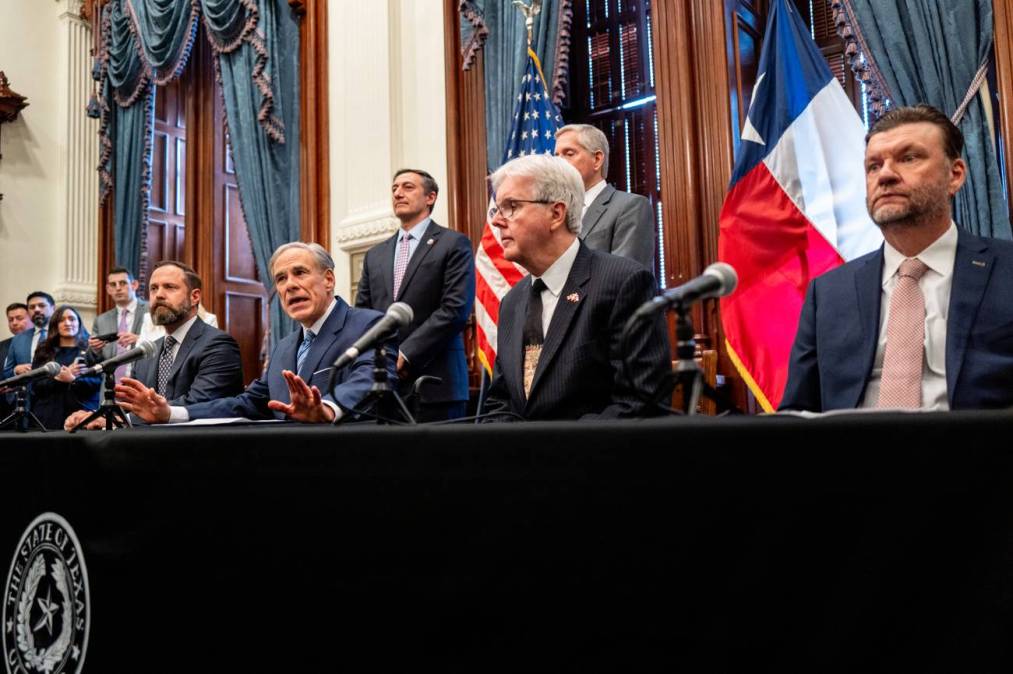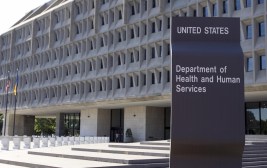Inspired by DOGE, Texas approves new efficiency office

Texas Gov. Greg Abbott on Wednesday signed legislation making his state the latest to launch an agency modeled after the Department of Government Efficiency, Elon Musk’s temporary division tasked with rooting out fraud, waste and abuse in the federal government.
The new state law created the Texas Regulatory Efficiency Office, which will receive $22.8 million in funding over the next five years. TREO is tasked with spotting unnecessary rules and other impediments to the state’s efficient operation. It’s also tasked with improving access to public information, in part by creating a new website that aids information searches for people working in regulated industries.
Born in a Texas House committee called Delivery of Government Efficiency, Texas’ office borrows the federal DOGE’s purported spirit of improved efficiency, while foregoing the radical personnel cuts and intrusive operations defining Musk’s efforts. But like Musk’s team, Texas’ office is at least a little controversial.
Rep. Brian Harrison, a Republican, opposed the bill on the House floor this session, arguing that creating a new office that increases spending and grows the bureaucracy is the “opposite” of efficiency. Texas’ new office, which is similar to efforts underway in at least 25 other states, will be supported by as many as 18 full-time staff members.
The governor and other supporters of the new law, such as its Republican sponsors — Rep. Giovanni Capriglione and Sen. Phil King — have said it’s necessary to reverse the state’s increasing size and tendency toward waste.
“The regulatory environment in Texas is getting too burdensome,” Abbott said Wednesday. “It will put a check on the growth of the administrative state in Texas.”
TREO is tasked with creating a manual agencies can consult, with best practices for tasks like preparing local employment impact statements and conducting regulatory analyses. The office must also create a regulatory reduction guide designed to assist agencies in how to reduce their rules and requirements.
The office’s efforts could reduce the number of training hours various industries require, streamline forms residents are required to submit and eliminate administrative fees, according to a House committee report.
The Texas Department of Information Resources, the state’s technology bureau, is among the agencies directed by the new law to assist in its execution, including by better publicizing regulatory information. The law requires a new website to explain regulations to the public using plain language.
“Governor Greg Abbott and the Texas Legislature’s commitment to efficiency and transparency in Texas government ensures that Texans can access and understand the processes and rules by which government operates,” Amanda Crawford, Texas’ chief information officer, wrote StateScoop in an emailed statement. “As an agency whose original founding statute focused on efficiency, the Texas Department of Information Resources stands ready to further improve the public’s access to online rules, forms, and other filings through the implementation of Senate Bill 14.”
Calvin Jillson, a political science professor at Southern Methodist University, said he was unsure if TREO is necessary.
“Texas is already a very low-tax, lightly regulated, modest social program state,” he said. “So you sort of wonder what the search for waste, fraud and corruption would uncover in Texas, particularly since the state has been under Republican administration for the last quarter century. … We’re already very careful and the state’s leadership touts the fact that they are good stewards of the public resources.”
Some have suggested that the impact of fiscally conservative leadership in Texas may be overstated. Texas state Rep. Brian Harrison, a Republican, noted in a tweet last December that the state’s government was smaller when Democrats were in power.
“We’ve been coasting on our conservative reputation,” Harrison wrote, pointing to research showing that Texas’ state and local spending as a share of gross domestic product rose from 12% in 1970 to 16.5% in 2024.
The American Institute for Economic Research, meanwhile, calls Texas’ fiscal policy “very good” and notes that its public employment level of 10.5% of private employment is “significantly below average.”
Jillson pointed to the state’s low spending on health care and education. In 2020, Texas had among states the fourth-lowest spending per capita on health care, and has regularly ranked in the bottom 10 on spending for education. Jillson suggested the state might instead spend its money to improve those things.
A 2024 report from the Mercatus Center at George Mason University, though, counts Texas as the fifth most regulated state, after only California, New York, New Jersey and Illinois.
“Without a systematic approach to reviewing and removing outdated or redundant regulations, the steady buildup of government interventions eventually shows up in economic outcomes ranging from business activities such as investment decisions, startup rates, and productivity growth to household outcomes such as household income and consumer expenditure,” a House committee report reads.
Jillson pointed out that proposals for increased efficiency put Democrats in a difficult position politically, because it’s hard to advocate for a less efficient government. But in the Republican party, he suggested, there may be additional motivations.
“We may be an efficient state government, but you can’t believe there’s no inefficiency we can find and squeeze out, so we’re going to look for it,” he said. “That’s not a bad political line, but it is also the case that one way to show fidelity with the Republican party and Donald Trump as its leader is to follow him in the DOGE effort.”






